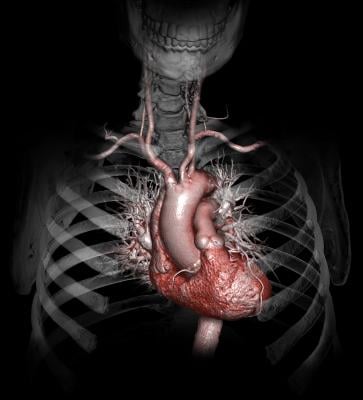
May 15, 2018 — A new study is the first to report a relationship between post-traumatic stress disorder (PTSD) and new cases of atrial fibrillation (AF), the most common heart arrhythmia. The large nationwide study included more than 1 million patients with no prior history of AF or atrial flutter. The study was at Heart Rhythm 2018, the Heart Rhythm Society’s 39th Annual Scientific Sessions.
AF affects more than 2.7 million American adults each year and this number is expected to increase to nearly eight million by the year 2050[1]. Since AF significantly impacts both patients and the healthcare system, researchers are committed to identifying risks factors and developing strategies to prevent and manage the arrhythmia. AF is linked to traditional cardiovascular risk factors, including hypertension, diabetes, obesity and sleep apnea. Data linking psychological stress and negative emotions to AF are also beginning to emerge[2]. PTSD is a related chronic stress condition that has been linked to other cardiovascular disease (e.g., hypertension), however, its relationship to AF has not been previously studied.
This study included 1.06 million post-9/11 veterans who first accessed medical care with the Veterans Health Administration (VHA) from October 2001 to November 2014 and had no history of AF or atrial flutter. Patients had a mean age of 30.29 ± 9.19 years at baseline and 87.8 percent were male. Multivariate Cox regression models were used to estimate the independent association of PTSD with incident AF after adjusting for demographic characteristics, lifestyle factors and time-dependent cardiovascular risk factors.
During a mean follow up of almost five years (4.8 years), 2,491 veteran patients were diagnosed with AF. Results from this study show that a new diagnosis of PTSD was associated with an increased risk for AF diagnosis after adjustment for other variables such as age, gender, race, smoking status, body mass index, and diagnosis of hypertension, diabetes, coronary artery disease, myocardial infarction, drug and alcohol use/abuse disorders, major depressive disorder and obstructive sleep apnea.
"These data suggest that PTSD is a potentially modifiable risk factor for AF," said Lindsey Rosman, Ph.D., post-doctoral research fellow in cardiovascular medicine at the Yale School of Medicine. "Our results also raise the possibility that early detection and treatment of PTSD may reduce a patient’s risk for developing AF. It’s important to note that our patient population was much younger than the average patient diagnosed with AF and less than half had pre-existing structural cardiovascular disease prior to developing AF. These results point to a potential opportunity to prevent young people who are exposed to trauma from developing a dangerous heart arrhythmia like AF that greatly impacts their long-term health and quality of life."
The authors of this study call for further research to fully understand the behavioral and biological mechanisms underlying the relationship between PTSD and AF, as well as clinical trials to determine whether early treatment of PTSD can reduce AF risk. If these treatments are found to be effective, they could help manage the risk of an AF diagnosis caused by PTSD and potentially change patient outcomes.
Heart Rhythm 2018 is the most comprehensive educational program for heart rhythm professionals, featuring more than 200 educational sessions and more than 140 exhibitors showcasing innovative products and services. For more information: www.hrssessions.org
Find links to all the Heart Rhythm 2018 Late-breaking Studies
References:
#HRS2018 #HRS18


 December 19, 2025
December 19, 2025 









